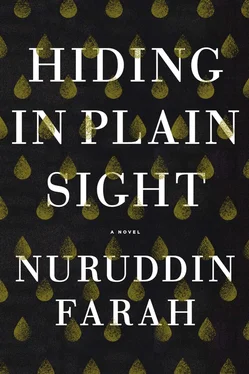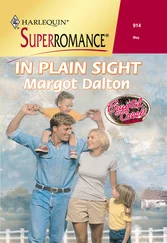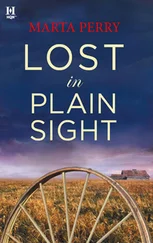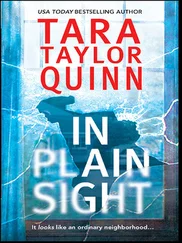“I hear you were in Uganda,” Bella says.
Valerie says, “Word travels fast.”
Bella asks, “What’s the story about Uganda?”
“It’s a beautiful country.”
“And they eat mattock every day, don’t they?”
“Mashed plantain with peanut stew.”
“Anything happen there?”
“They said you’d be mean to me,” Valerie says.
Bella does not rise to the bait, does not even stop to wonder who “they” are. But she does wonder yet again what a man as gentle, loving, and generous as Aar found in such a woman and what held them together for so long. She remembers once asking Aar this directly. As he was prone to do, he took refuge in a piece of Somali wisdom, this one a caution against outsiders placing themselves between “the penis and the vagina of a couple.”
Bella pressed him. “Not a good enough answer.”
“Maybe sex holds us together,” Aar said.
And at that, Bella had fallen silent, defeated.
Now Bella tries another tack. “Who gave you the sad news?” she asks.
“My mother did,” says Valerie. She still does not offer her condolences, even when Bella says, by way of apology, “I had no way of reaching you.” Yet Bella knows that she herself has been equally rude — she hasn’t greeted her sister-in-law with any real warmth or grace, nor has she so much as offered her something to drink. Her words sound stilted to her ears. The English phrase that one closes a letter with, “Yours sincerely,” comes to mind — a phrase that is not always meant to represent sincerity.
She watches with annoyance as Valerie looks askance at her, as if she wouldn’t want to be seen in such company. And rather than feel sad at how their mutual hatred has blossomed over the years, Bella gives in to the impulse to be nasty.
“Why were you in Uganda?” she asks.
“What a question to ask!”
Bella is relieved to discover that neither Helene nor Gunilla seems to have shared Bella’s involvement in paying Valerie’s legal fees. “Did you mistake Uganda for Kenya,” she asks, “and go there by mistake?” Valerie’s ignorance of geography is legendary.
“I know better than that,” Valerie says.
“Oh?”
“Yes,” says Valerie. “It happens that Padmini was born there.”
“Still, that doesn’t explain why you were there.”
“I went with her — to recover some family property in Nakasero, the center of the city,” Valerie says. “Her family was among the Asians expelled by Idi Amin. Remember those Dukawallahs?”
Bella does. The Dukawallahs were small-business men and shopkeepers hailing principally from the Indian subcontinent. Many had originally come to work on the Ugandan railway. Often they set up general stores in hard-to-reach localities in the African countries where they settled — just as the Somalis in South Africa are doing these days — but as they thrived, they moved to the bigger cities. Idi Amin ejected them from Uganda in 1972, but in Kenya, they still account for ten percent of the population.
“And why are you here?” asks Bella at last, turning to the matter that must be on both of their minds.
But Valerie is evasive. “Here, as in Nairobi here?”
She seems to be stalling, and as Bella waits for an answer, unpleasant memories of their previous encounters surge up in her, crowding out her few pleasant memories of Valerie. Of course, she has little impulse to dwell on pleasant memories anyway, at a time when she is at peace neither with herself nor with the world at large.
“Yes,” she says. “What brings you to Nairobi?”
“My husband’s death,” Valerie says.
“Aar’s death has brought you here?”
“That’s right.”
“But he didn’t die here.”
“And my children, of course.”
Bella waits, and Valerie continues. “And if I am honest with you, it’s also about the guilt I’ve felt over these years, even though I pushed it back and did not attend to it; this brings me here too. I hope you understand where I am coming from.”
Bella disregards this last — her sister-in-law, she believes, has no understanding of the concept of guilt and its ramifications and attendant responsibilities — and goes for the jugular: “How do you mean, you’re here for your children? You haven’t seen or communicated with them all these many years.”
“I am their only living parent,” Valerie says.
And before Bella knows it, she has lost it despite all her resolve. “Parent, you call yourself a parent? Not to these children you aren’t, and you haven’t been for many years.”
But Valerie isn’t backing down. “Now that their father has been killed and I am still among the living, it falls to me, as their mother, to have them come to me so I can look after them.”
The woman is clearly insane, Bella thinks. Look at her, dressed as though she were on her way to a Bollywood party. Beware of the middle-aged woman who doesn’t behave or think like one! It isn’t going to be easy to do battle with Valerie, Bella thinks.
“When was the last time you spoke to them?” she asks. “The last time you sent them a birthday present or penned a letter or sent an e-mail to congratulate them on their excellent achievements in sports or school. When?”
Valerie pauses. “Still, they are my children from my own blood.”
“Have you been in touch with them since you arrived?” Bella says. She does not divulge the fact that the children are in fact at home, where she left them.
“Mum has given me their numbers,” Valerie says.
“You tried to speak to them, did you?”
“I did speak with them,” says Valerie, not offering more.
Bella lets the half-truth stand. What kind of reception did Valerie expect when her own children haven’t heard from her or set eyes on her for years? This madwoman does not seem to remember that just as infants look like one parent one day and then seemingly overnight change their features, as though at will, so that they look like the other, children aren’t consistent when it comes to which of their parents they love more. And thanks to Valerie’s absence from their lives, Salif and Dahaba have little reason to revert to their earlier intimacy with her. What chance does she have to win back their hearts — not in the courts, surely, having deserted her family, even if she is still technically Aar’s wife — or, rather, his widow? But Bella is no legal expert, and she doesn’t know what a judge in a Kenyan court would make of Valerie’s situation.
“I’ll do the best I can,” Valerie says.
Bella stares at her in disbelief. “And what if they don’t wish to see you?”
“I’ll take my chances.”
The two lock eyes, and for the first time since they began to talk, Bella really looks at her, taking in the face spotted with pimples — or are those mosquito bites? — and what seems to be an atypical paleness. Has she had malaria? Bella wonders. Perhaps it’s not that her skin is pale but that her eyes seem jaundiced.
“How long do you plan to stay in Nairobi?” she asks.
“It depends,” says Valerie.
“On what?”
Valerie looks around, as though others might overhear her, and when she speaks, it is almost in a whisper. “On how things pan out.”
“What things?”
This time Bella doesn’t get an answer. Instead, Valerie asks a question of her own. “Do they know that you are here?”
“They do,” says Bella.
With a touch of sarcasm, Valerie responds, “Lucky you!”
And Bella can’t resist adding, “But then, I’ve invested in them and you haven’t. I never lost touch.” Bella doesn’t like to hear herself speaking vengefully, rubbing more salt in Valerie’s open sore. And so she adds, a little more softly, “Not that anyone can guarantee it will be smooth sailing with teenagers.”
Читать дальше












